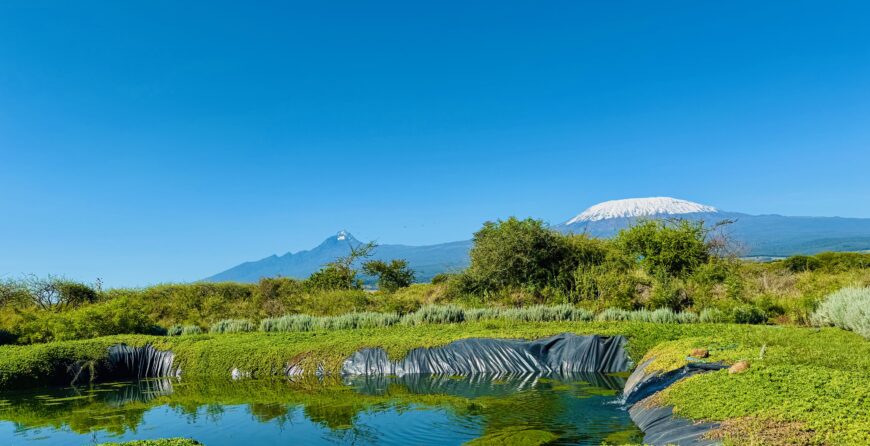Why Natural Farming Methods
Introduction: Why Natural Farming Matters Today
In today’s fast-changing world, food security and environmental conservation are pressing issues. Conventional agriculture, while productive, has come at a cost: soil degradation, chemical pollution, and declining biodiversity. This is why more farmers in Kenya—and across the globe—are turning to natural farming methods.
Natural farming emphasizes working with nature instead of against it. By using organic manure, crop rotation, and eco-friendly pest control, farmers create a system that supports both human health and the environment. Visitors to organic farms in Kenya, including Nature’s Crest Farm near Amboseli, are seeing firsthand how natural farming can transform communities, landscapes, and even the taste of food.
The Global Movement Toward Eco-Friendly Agriculture
Countries around the world are encouraging organic and natural farming to reduce reliance on harmful chemicals. Nations like India, Japan, and Uganda have seen significant adoption of natural methods, proving that sustainable practices can boost yields while preserving the planet.
Kenya’s Agricultural Heritage and the Shift to Natural Farming
Kenya’s farming heritage has long been rooted in natural methods. Before synthetic fertilizers and pesticides arrived, communities relied on compost, animal manure, and mixed cropping. Today, a growing number of organic farms in Kenya are returning to these practices, proving that traditional wisdom aligns with modern sustainability goals.
What is Natural Farming?
Core Principles of Natural Farming
Natural farming avoids synthetic chemicals and instead nurtures the soil with compost, green manure, and natural pest deterrents. It respects ecological balance, ensuring long-term soil fertility and biodiversity.
How It Differs from Conventional Farming
Conventional farming depends on chemical fertilizers and pesticides, which often degrade soil and contaminate water. In contrast, natural farming creates self-sustaining systems that regenerate resources.
Role of Organic Farming in Natural Agriculture
Organic farming is a key component of natural agriculture. By banning synthetic chemicals and focusing on fresh produce, farmers ensure food is safe, nutritious, and eco-friendly.
Top 10 Reasons to Switch to Natural Farming
1. Healthier Produce Free from Chemicals
Natural farming produces food without harmful residues. Families eating produce from farms like Nature’s Crest enjoy healthier, chemical-free meals that boost wellness.
2. Restores Soil Fertility Naturally
Soil enriched with compost and crop rotation remains fertile for generations. Unlike chemical farming, which depletes soil over time, natural farming enhances productivity.
3. Conserves Water and Protects Ecosystems
Natural farming uses mulching and cover crops to retain soil moisture, reducing water use. This is especially vital in Kenya’s semi-arid regions like Kajiado near Amboseli.
4. Promotes Biodiversity on Farms
By avoiding monocultures, natural farming encourages diverse crops and attracts pollinators like bees and butterflies. This strengthens ecosystems while improving yields.
5. Reduces Farming Costs and Increases Profitability
Natural inputs like compost and animal manure are cheaper than synthetic fertilizers. Farmers save money while maintaining healthy crops.
6. Supports Climate Change Mitigation
Natural farming reduces greenhouse gas emissions by eliminating synthetic fertilizers and emphasizing carbon sequestration through organic soil management.
7. Provides Safer Working Conditions for Farmers
Farmers exposed to chemicals often face health risks. Natural farming eliminates these hazards, creating safer working environments.
8. Encourages Sustainable Rural Livelihoods
Natural farming empowers local farmers by reducing input costs and increasing demand for organic products. This leads to more stable rural economies.
9. Produces Better-Tasting and More Nutritious Food
Visitors often note that fresh produce from organic farms in Kenya tastes richer and more vibrant. Natural farming allows fruits and vegetables to develop their full flavor profile.
10. Aligns with Global Sustainable Development Goals (SDGs)
Natural farming supports SDGs such as Zero Hunger, Climate Action, and Responsible Consumption. By switching, Kenya contributes to global sustainability efforts.
Natural Farming in Kenya: Case Studies
Organic Farms in Kenya Leading the Way
Across the country, smallholder farms are adopting composting, mulching, and natural pest management. These farms are gaining popularity for their sustainable produce.
Farms in Kajiado and Near Amboseli
Farms near Amboseli, including Nature’s Crest Farm, demonstrate how natural farming blends with eco-tourism. Visitors enjoy tours, fresh meals, and sweeping landscapes.
Farms with Great Views of Mount Kilimanjaro
Some farms offer unforgettable farm-to-table dining with views of Mount Kilimanjaro, combining sustainability with breathtaking scenery.
Natural Farming at Nature’s Crest Farm
Commitment to Soil Health and Organic Practices
Nature’s Crest Farm enriches its soil using compost, crop rotation, and green manure. These methods improve fertility without depleting natural resources.
Herbal Farming and Healing Gardens
Beyond fresh produce, the farm grows natural herbs like lemongrass and rosemary. Guests learn about their healing properties while enjoying herbal teas and farm-fresh meals.
Farm Tours for Visitors and Schools
Nature’s Crest organizes farm tours in Kenya that showcase natural farming practices. Families, schools, and eco-tourists leave with hands-on experience and deeper awareness of sustainability.
Challenges and Solutions in Adopting Natural Farming
Overcoming Pests Without Chemicals
Natural pest control methods like neem sprays, companion planting, and predator insects help protect crops effectively.
Managing Crop Yields Sustainably
While yields may initially dip, long-term benefits include healthier soils and more resilient crops that perform better under stress.
Training and Awareness for Local Farmers
Workshops, farm tours, and government programs are essential to teach farmers about natural methods and their long-term benefits.
FAQs
Q1. What is the difference between natural and organic farming?
Organic farming avoids chemicals, while natural farming goes further by creating self-sustaining ecosystems.
Q2. Are natural farming methods profitable for Kenyan farmers?
Yes. With reduced input costs and growing demand for organic food, natural farming often leads to higher profits.
Q3. Can farm tours in Kenya teach visitors about natural farming?
Absolutely. Farms like Nature’s Crest near Amboseli showcase natural methods through hands-on tours.
Q4. Do farms with great views of Mount Kilimanjaro practice natural farming?
Many of them do. Visitors can enjoy eco-friendly farming alongside scenic landscapes.
Q5. How does natural farming help fight climate change?
By avoiding synthetic fertilizers, it lowers emissions and enhances soil’s ability to store carbon.
Q6. Can schools participate in natural farming tours?
Yes. School farm tours in Kenya often include interactive lessons on soil health, composting, and eco-farming.
Conclusion: Why Kenya’s Future Depends on Natural Farming
Switching to natural farming isn’t just an option—it’s a necessity for Kenya’s food security and environmental resilience. From organic farms in Kenya to farms near Amboseli with great views of Mount Kilimanjaro, the benefits are clear: healthier produce, stronger rural communities, and a cleaner planet.
At the forefront of this movement, Nature’s Crest Farm demonstrates how farming can be profitable, sustainable, and educational. Whether you’re a visitor enjoying a farm tour in Kenya or a local farmer seeking better practices, natural farming offers a blueprint for a healthier future.


